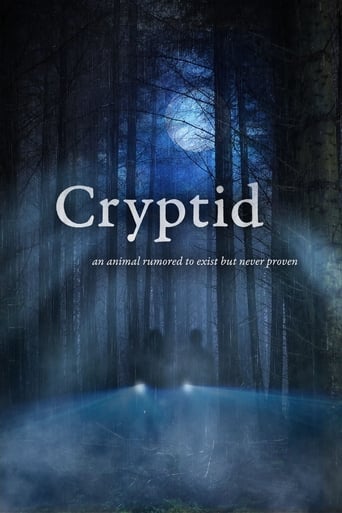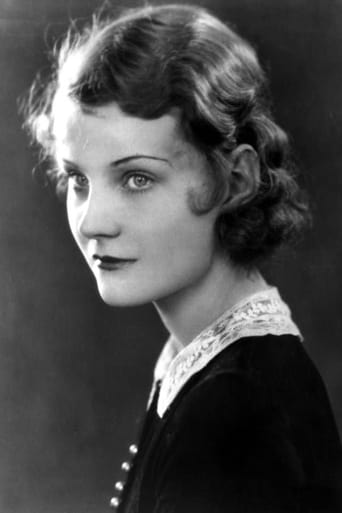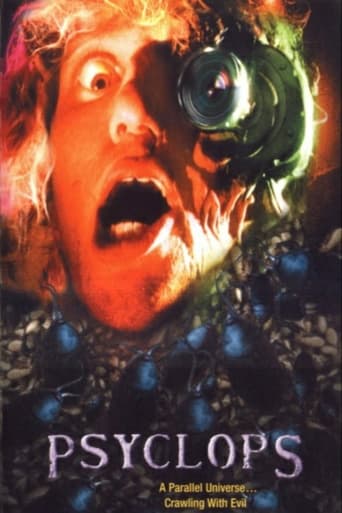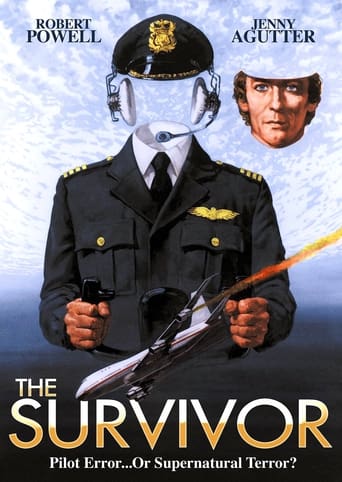Dracula (1931)
British estate agent Renfield travels to Transylvania to meet with the mysterious Count Dracula, who is interested in leasing a castle in London and is, unbeknownst to Renfield, a vampire. After Dracula enslaves Renfield and drives him to insanity, the pair sail to London together, and as Dracula begins preying on London socialites, the two become the subject of study for a supernaturalist professor, Abraham Van Helsing.
Watch Trailer
Cast
Similar titles

Reviews
Absolutely Fantastic
Clever, believable, and super fun to watch. It totally has replay value.
It's the kind of movie you'll want to see a second time with someone who hasn't seen it yet, to remember what it was like to watch it for the first time.
It's simply great fun, a winsome film and an occasionally over-the-top luxury fantasy that never flags.
How do you review a film which is not only over 85 years old but is widely regarded as an utter masterpiece of early Hollywood cinema? I guess you should start at the beginning ... Chances are if you were to do an impression of the Count, you'd be inadvertently mimicking Lugosi's shining role as the vampire in pursuit of fresh blood while playing a cat-and-mouse game with vampire hunter Van Helsing.This was, of course, not the first film to be based on Bram Stoker's novel - Nosferatu (1922) and the lost Russian film Drakula (1920) borrowed plot points and the vampirical villain, but neither were could use the copyrighted contents of the book. The 1931 film was, however, the first talking Dracula film, meaning that Bela Lugosi (originally from modern-day Romania) invented the Count's accent everyone copies today.Lugosi's successful, if ultimately tragic, career in horror (alongside the likes of Boris Karloff, Peter Lorre and Lon Chaney Jr) can be traced back to the original Broadway adaptation and subsequent film held in such high regard today. Even when Dracula is uncentered in the shot as one of five characters on a balcony at an opera, he still commands the screen (as you can imagine he surely would've done on stage four years before).Dwight Frye also gives an intense performance as solicitor-turned-slave Renfield. His descent into submissive madness might be considered a bit campy these days, but that laugh on the ship gives me goose bumps every single time I hear it.Interestingly, there's no music in the film with the exception of the classic Swan Lake opening titles. When it's meant silent in Lucy or Mina's pitch black bed chamber, it's totally silent and much tenser than it might've been with a soundtrack. A version was released in 1998 with an orchestral score written by Philip Glass - the music in this version of the film (now the most viewed) is subtle and does its job admirably without too much distraction from the original directorial intentions.While the film is not scary anymore (in 1931, it surely would've been) it's worth a watch for the technical advancements it shows (including a simple tracking shot which was revolutionary at a time of static cameras) and its significance to film and the horror genre. No-one can deny its impact.Many of the film's lines have passed into folklore, Dracula's voice is rarely altered, and his slicked-back appearance became the standard for vampires since. It's not just part of our pop culture; it might just be the earliest inclusion in pop culture full-stop ... and it's still relevant nearly a century later. Best Quote: "For one who has not lived even a single lifetime, you're a wise man, Van Helsing."
This movie is slow from beginning to end and nothing about it really scares me. The one strength I can find is Bela Lugosi's performance as Dracula. Everything else was weak and felt mediocre in its execution
What a great year to go to the movie! Indeed, everyone elevates 1939 as the golden year of Golden Age Hollywood but what a glorious start the film industry had with the talkies. In 1931, you had the birth of two Warner Bros gangster icons Jimmy Cagney and Edward G. Robinson that people went to see, see? Silent movies resisted with a final masterpiece from Charlie Chaplin. French cinema saw the birth of Jean Renoir's talent and Marcel Pagnol's Marseilles trilogy brought the first French icon: Raimu, a man with an accent, but the greatest legacy would be owed to Universal and their "monster" creatures. I grew up drawing Dracula, Frankenstein and Mummies ignoring that they were all pretty much born the same year... not the myths, but their iconic perception.1931 was a milestone on the field of horror movies, think about it, "Frankenstein" and the iconic "It's alive!" moment, the Fredric March version of "Dr. Jekyll and Mr. Hyde", that earned the actor one of the first Oscar nomination for playing split personalities. And of course, there's Count Dracula, played by Bela Lugosi, the egomaniac Hungarian who earned Martin Landau an Oscar for his unforgettable performance in "Ed Wood". And, If the film doesn't really revolutionize the horror gothic genre because one should give F.W. Murnau's "Nosferatu" the credit he deserves, it was still a game-changer in the way It portrayed the iconic villain, I mentioned Robinson, Cagney, Raimu, guess what they all had in common? An accent. And it's all the more fitting that another iconic character would have one, too.One digression about Murnau though, I read that Todd Browning was so distraught by the tragic untimely loss of the director that he didn't put all his heart in "Dracula" and left cinematographer Karl Freund lead the show. I don't know if it did really affect the movie but I noticed that as far as directing goes, the film has the right atmosphere but nothing new since "Nosferatu" and the best parts seem rather stagey, it isn't surprising since it was based from a play loosely based from Bram Stroker's "Dracula". That's just to say, as much as there's no ace card in the directing, there's no particular flaw either. I guess Browning's directing was more tangible in his 1932's classic "Freaks" but for "Dracula", the key is Bela Lugosi. His performance makes the film.Indeed, it's almost the performance of Lugosi that provides all the eerie atmosphere the film needed, so was Nosferatu but in 1922, his 'presence' was enough, in 1931, the audience was thriving for a performance as well as a presence. And there's something in this Dracula that satisfies whatever needs the talkies created, the villain talks and the way he talks says something about the threats he incarnates. On that level, his speech mannerism is as crucial as Robison or Cagney's street smart slang, his accent and tendency to speak slowly, leaving a bit of suspense between crucial words, this Dracula is even more menacing than a monster because he can catch us off guard."For one who didn't live a single lifetime... you're a wise man. Van Helsing" "I never drink.... Wine. "All the dots mark a long pause, and each pause is enriched by a rich palette of smiles and death glares. These are lines as classic as the "children of the night" but they belong to posterity because they're spoken in a context where suavity and vileness weren't as obvious as they are today. There is something suggested even in Lugosi's appearance, the way he stares, the way he walks, indicating an inner nobility and sophistication, notice how the well-spoken Renfield (Dwight Frye) becomes totally devoted to his master, as if he was drawn to him, to his aura. Even the murders look like a sort of emotional fusion, an erotic trance. We just believe such a power can exist because it works on a cinematic level, almost romantic.It's also interesting that the film uses ordinary, if not uncharismatic, actors (except for Edward Von Sloan who also starred in "Frankenstein") to be the match to Dracula, no cockiness or arrogance, Dracula is dealt with as real people would do and it's a real departure from the usual theatricality, apart from Dwight Frye who tends to overact a little, almost undermining the film's seriousness. Still, there's a lot of talking and even in Dracula's absence you can feel his presence, even the anticlimactic defeat leaves you doubt about his fate because you can't believe a monster like this could let himself be defeated. We don't root for the villain in the sense that we wish him to survive but he's so grand, so noble and so cinematically appealing that we sort of "side with him".Five decades before Hans Gruber, Lugosi invented the charismatic and sophisticated villain with an accent, and what an accent! The same year, Peter Lorre was another seminal "foreign" villain in "M" but his sordid gargoyle-like look and his crimes couldn't make him appealing, pathetic at best. I said in my review of "The Man Who Knew Too Much", the original, that Lorre was like a precursor of Gruber, but maybe he was inspired by Lugosi's performance in "Dracula".Dracula has a sort of divine aura accentuating his scariness. This is a villain that means business and if the film doesn't scare much, there's the performance. I said that "Nosferatu" was a presence, but this Dracula is a performance... and a presence as well.
The first time I saw this film I was probably 5 or 6 years old. By the end of the film I was hiding behind the couch, peaking out around the edge. I really can't remember a movie that has scared me so badly. I will always have so much respect for this film because of that. Every Dracula or vampire film made since this movie was shaped by this film. Whether they emulated parts of it or consciously tried to set themselves apart from it. The imagery of Dracula or vampires immediately draw the image of Bela's Dracula to mind. Bela did an excellent job being Dracula, especially since he barely had an idea what he was saying. His face was very expressive and dramatic.Dracula is a well made movie. It's always successful in painting an eerie mood. It has suspense and creeps, action and romance. I love the lighting in the film, how much everything contrasts. I always liked the effect of the tight shots of Dracula's face when he's using his powers of persuasion. And the ghostly flowing gowns of Dracula's wives striding across the room. This movie is great and I've seen it several times. My brother always preferred Frankenstein but I always liked Dracula.















